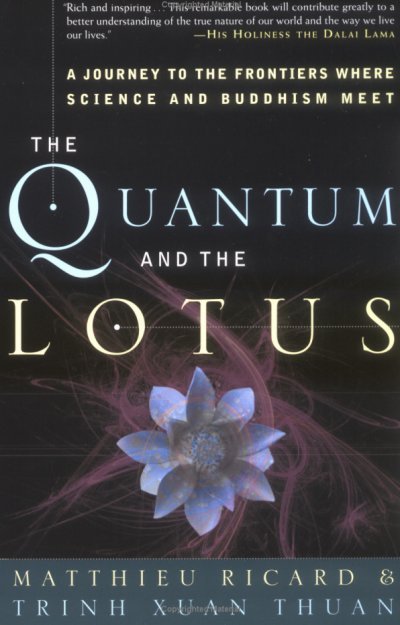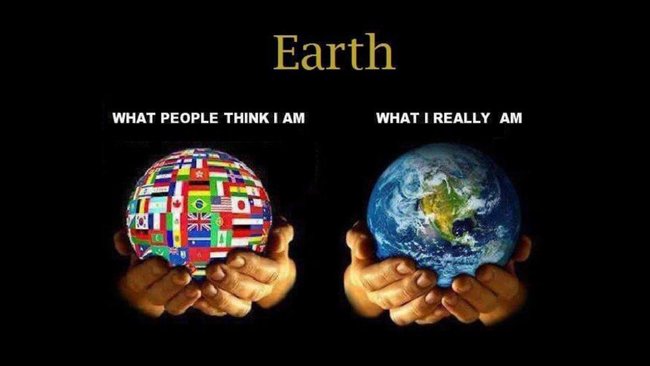#Discussion Time - The Quantum & The Lotus - Quote #2
I'm currently reading The Quantum & the Lotus and am posting questions to be considered when I come across interesting concepts discussed in the book. If you'd like a little more clarification you can read my first post in the series here.
The book is basically an interview between two monks/scientists that give their take on how the Buddhist philosophy interprets and exists alongside current scientific beliefs.

A little context
Right now in the story they are talking about what the aim is of our life and what we should be shooting for. The belief being presented is that the goal for us, as living sentient beings, is to be profoundly satisfied with our existence. So the discussion turns to how to walk a path that towards that goal.
Here's the part I'd like to discuss
The basis of ethics is extremely simple. Nothing is intrinsically good or evil. Good and evil exist only in terms of the happiness or suffering they create in ourselves or in other people.
If we adopt a truly altruistic attitude, so that we are deeply concerned with the well-being of others, then this becomes the surest guide for our judgment. In our daily lives, we will then be able to see far more easily which actions will bring about more happiness and will relieve more pain. This is direct experience, and not a moral theory or a set of predetermined rules. It means paying constant attention to our motives.
The mind has been compared to a crystal that takes on the color of the place where it has been placed. It is neutral. Our intentions determine the true nature of our actions, no matter what their appearances might be. The point is neither to condemn those who are driven by hatred, greed, pride, or jealousy, nor to tolerate such destructive emotions as if they were intrinsic parts of existence. Instead, they are treated as symptoms of a disease that can be cured, if we make the necessary effort. Buddhism's approach is in fact extremely pragmatic.
Scientific research provides us with information, but brings about no spiritual growth or transformation. By contrast, the spiritual or contemplative approach must lead to a profound transformation in the way we perceive the world and act on it. It is not enough to know, as in quantum physics, that our consciousness can't be isolated from the rest of reality. We must understand by personal experience that it is a part of that global reality. The move from theoretical knowledge to direct experience is the key to ethical problems. When our ethics reflect our inner qualities and guide our behavior, then they are naturally expressed in our thoughts, words, and deeds. They thus inspire others.
So what is your take?
Can good and evil really be simplified to the definition in the opening paragraph?
Would developing a truly altruistic attitude by default result in bringing more happiness into the world?
Are hatred, greed, pride and other negative emotions simply symptoms of a disease that can be cured?
Is the move from theoretical knowledge to direct knowledge required in order for us to truly live a life where we feel profoundly satisfied with our existence?
Some of my other recent posts:
 |  |  |

Hi Rais-or. As the sole commenter verified, this is a quality post. I've never heard of that book you're reading, but will check it out and add it to my shopping list.
As for your questions ...
For the most part, you've captured the definition of good and evil. However, I believe we must add to the "happiness or suffering they create." That is, we should include "the benefits for society and for humankind as a whole," as well as "whether or not they propel us further in our evolution, as a species in the material world, albeit one arising from spirit and imbued with spirit."
An altruistic attitude in and of itself will probably not result in more happiness. But it's a start, and it will definitely help.
Hatred, greed, etc, are essentially symptoms of a disease that can be cured. In some people, sometimes. And occasionally it will take too much time; i.e., the greedy, hateful person and / or his victim(s) will be dead and gone before any cure is effected. Now, if only everyone had eternity to evolve in .....
Without direct experiential knowledge, we may be able to feel satisfied with our existence, but that satisfaction would most likely not be "profound." For that profundity, we need more than knowledge; experience is essential.
Great comment. I'll try to add my thoughts to your response.
Loved reading your thoughts, thanks for engaging.
This post has received a 5.45 % upvote from @booster thanks to: @raised2b.
This post has received a 7.38 % upvote from @buildawhale thanks to: @raised2b. Send at least 0.50 SBD to @buildawhale with a post link in the memo field for a portion of the next vote.
To support our curation initiative, please vote on my owner, @themarkymark, as a Steem Witness